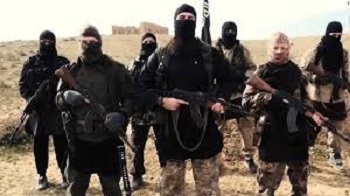The country has found itself in a very difficult position: it has already been drawn into a number of regional conflicts, including in Syria, Yemen and Libya, and now is also being pressured by internal problems, according to Anthony Samrani, an observer from the Lebanese daily L’Orient-Le Jour.
Apart from the complications and weakening of its positions in Syria and Libya, the Kingdom of Saudi Arabia is now being pressured by its won internal problems, Samrani’s writes in his article.
The regional crises particularly highlighted the divisions between two of the country’s prominent statesmen of the kingdom: Crown Prince Muhammad bin Nayef bin Abdulaziz Al Saud and Mohammad bin Salman Al Saud, Deputy Crown Prince of the country, according to the Sputnik News.
The kingdom is also being destabilized by threats from the jihadist groups, whose rhetoric has already attracted a large number of followers. According to data recently released by the analytical center Soufan Group, 2,500 Saudis have joined the ranks of Daesh (also known as ISIL/ISIS), making the country the second largest contributor to the jihadist groups.
Due to international and regional pressure and internal destabilization, Saudi Arabia finds itself in a somewhat paradoxical position: on the one hand, it is being criticized for favoring Daesh and for propagating the Wahhabi ideology in the region, and at the same time these very jihadist groups, which it is accused of supporting, threaten the country directly.
In this dual situation, the kingdom makes a decision to create an “Islamic coalition against terrorism”, which will include 34 countries. Thus Riyadh wants to demonstrate that it is at the forefront of the fight against terrorism. However the author wonders which country will decide which group is a terrorist, taking into account that in its statement, released on Tuesday, Riyadh did not explicitly mention Daesh.
The author offers Egypt, as an example: the country is a member of the coalition, it regards all groups connected with the Muslim Brotherhood, as terrorists. Qatar, on the other hand, does not classify al-Nusra Front, al-Qaeda affiliate in the region, as the one. Saudi Arabia itself regards Iran and its allies as tis number one enemy.
M.Wassouf

